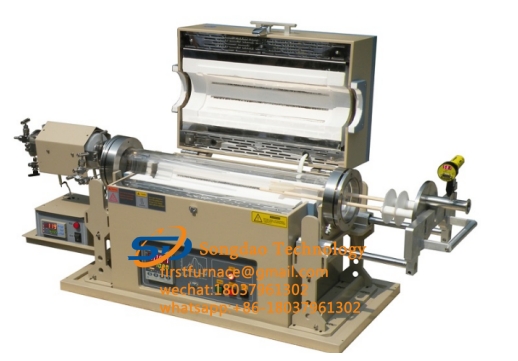- 25
- Sep
Installation steps and methods of tube furnace
Installation steps and methods of tube furnace
Tube furnaces are now widely used in many industries. They are professional equipment used to measure materials under certain temperature conditions. In order to make it better to use and function, the equipment must first be installed. Let’s take a look at it in detail below:

Tube type atmosphere furnace can be placed on the workbench to suit the work. The operating height of the personnel and the effective load-bearing capacity of the workbench should be greater than 200kg. The following is about electrical installation:
1. Source configuration: 220V. According to the user’s electric control cabinet configuration power should be greater than 6Kw.
2. Installation of the galvanic couple: insert into the furnace with a depth of 25mm, and use the graduation number compensation wire to connect with the temperature control instrument. Note: The quartz tube should be installed first and then the thermocouple. The thermocouple should not be in contact with the quartz tube. The electric furnace and the control cabinet are grounded as a whole, and the grounding resistance of the grounding wire should be less than 4S2.
3. Resistance wire connection mode: two wires in parallel, power supply: single-phase 220V. At the same time, due to transportation and other reasons, the fastening of each screw of the furnace body should be checked to confirm that it is correct.
The tube furnace is a new type of high-performance and energy-saving electric furnace developed by advanced technology. There are single tube, double tube, horizontal, openable, vertical, single temperature zone, dual temperature zone, three temperature zone and other tube types. Furnace type. It is mainly used for experiments and small batch production in universities, research institutes, industrial and mining enterprises, etc. It has safety and reliability, simple operation, high temperature control accuracy, good heat preservation effect, large temperature range, high furnace temperature uniformity, multiple temperature zones, optional atmosphere, vacuum furnace type, etc.
